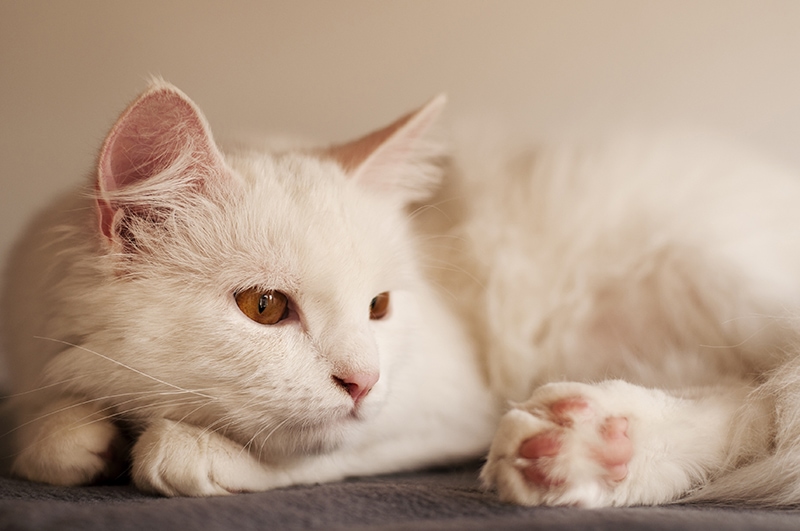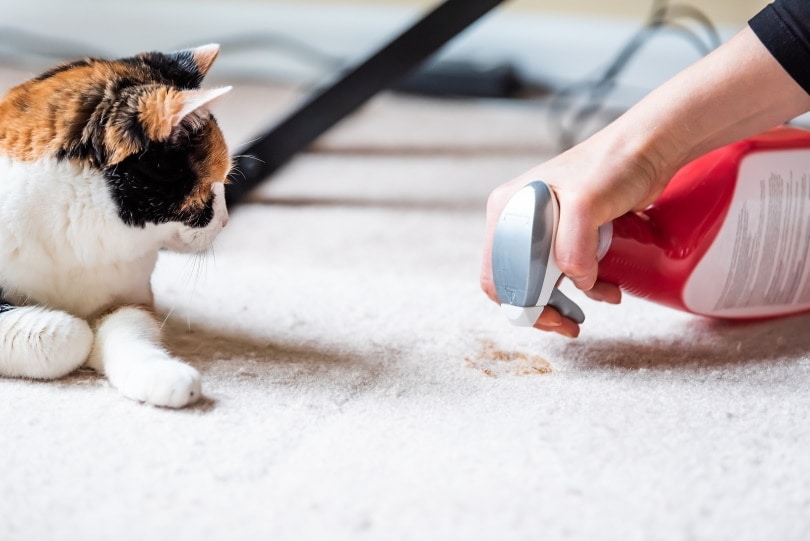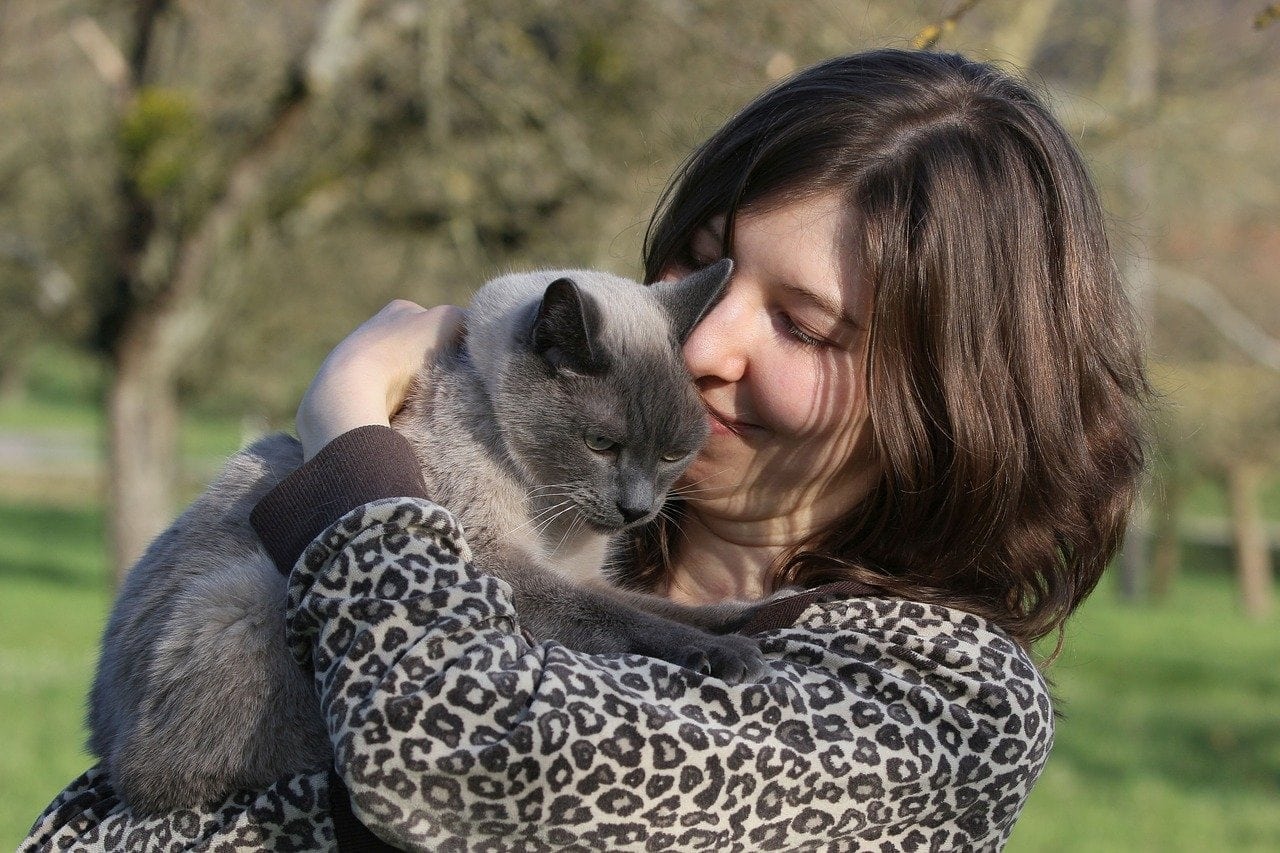Can Cats Eat Grapefruit? Vet-Approved Facts & FAQ

Updated on

Click to Skip Ahead
Most human foods may not be ideal for cats, but a small taste is typically unlikely to cause concern. Grapefruit is a whole other story. Like all citrus fruits, grapefruit is toxic to cats and should be avoided.
Citrus fruits are a discreet danger in the home and one worth considering due to their adverse effects on cats. Let’s explore whether cats can eat grapefruit and how you can prevent exposure.
Can Cats Eat Grapefruit?
As with other citrus fruits, grapefruits contain psoralens and essential oils, which are toxic to cats. Most parts of the grapefruit can be toxic or cause gastrointestinal upset. Cats can suffer signs of exposure through ingestion of the fruit or grapefruit essential oil. Essential oils can also be inhaled and absorbed through contact with the skin.
Fortunately, cats have a natural aversion to citrus fruit that often protects them from contact. They don’t have sweetness receptors to enjoy the flavor of it. And while the aromatic essence of fresh citrus is delightful to humans, a cat’s extra-sensitive nostrils generally deem it overwhelming and off-putting.

What Happens If Cats Eat Grapefruit?
According to the ASPCA the grapefruit flesh is not considered to be toxic. However, if your cat eats a small amount of the flesh they may still suffer from digestive upset due to its acidity.
The toxic compounds, psoralens and essential oils, are found in the pith, peel, plants and seeds. Psoralens in grapefruit are naturally occurring furanocoumarins (furocoumarins). The compounds increase UV light absorption, helping to treat people with skin diseases, such as psoriasis and eczema, though they also possibly contribute to melanoma development 1.
In cats, psoralens can promote photosensitivity. Your pet may develop skin issues from exposure to light after eating grapefruit, such as dermatitis. When ingested, psoralens and essential oil extracts, particularly limonene (~93% of the essential oil composition), in grapefruit can cause GI upset and citrus poisoning.
- Vomiting
- Diarrhea
- Reduced appetite
- Lethargy
- Drooling
The nervous system can also be affected leading to uncontrollable tremors, depression, poor coordination (ataxia), and seizures. In rare cases, excessive exposure or consumption can even cause collapse, coma, and eventual death.
How Do You Treat Grapefruit Poisoning?
If your cat has ingested grapefruit ( including grapefruit essential oil) or had contact with the essential oil then contact your vet, a 24/7 emergency vet service, or a pet poison hotline. You can contact the Pet Poison Helpline at 855-764-7661 (fees apply) or ASPCA Animal Poison Control at (888) 426-4435 (fees may apply). Seek advice straight away, even if your cat is not yet showing any signs.
- The signs of exposure
- The type and amount of grapefruit ingested
- The time the signs appeared
- The severity of the issue
- Your cat’s behavior
Your vet may request an emergency visit. They will do an examination, and may take blood or urine samples, as well as checking your pet’s health history for issues that may worsen conditions or prevent certain treatments.
Induced vomiting with an emetic drug may be necessary. Your vet might also administer activated charcoal to absorb the toxins and supportive care such as IV fluid therapy. Never attempt to induce vomiting or treat your cat at home as this can be dangerous.
FAQ (Frequently Asked Questions)
Are Citrus-Based Essential Oils Safe for Cats?
Some owners accidentally subject cats to essential oils by applying citrus-based natural topical ointments or shampoos. Once they absorb it through the skin, their liver lacks the enzyme to metabolize and break down the toxins. Diffusers, room sprays, pest deterrents, and cleaners can additionally pollute the environment, resulting in possible inhalation and contact with essential oils.
Considering all the routes to exposure will keep your cat safe. Don’t use essential oils in rooms cats inhabit or store them in areas cats can access. Clean up after using citrus fruit in the kitchen, and keep fresh fruit stored in a cabinet. Wash your hands after handling grapefruit or essential oil, and place diffusers and other essential oil containers out of your cat’s reach to prevent them from accidentally spilling the oils or inhaling the spray.

Are Other Fruits Safe for Cats?
Although some fruits are not harmful for cats to eat, they should never become part of their regular diet. However, serving fruit as an occasional treat is okay for most cats. Here are a few fruits you can feed your cat, but remember to chop them into small pieces and remove any seeds, rinds, and stems.
- Strawberries
- Raspberries
- Cantaloupe
- Blueberries
- Bananas
- Watermelon
Final Thoughts
Cats can’t eat grapefruit, but the danger citrus fruits pose doesn’t stop with the fresh fruit you enjoy for breakfast. Also watch out for citrus essential oils which can be highly toxic if they are ingested or accidentally get onto a cat’s skin. Rather than focusing on protecting your cat from the grapefruit on your kitchen counter, which cats aren’t typically drawn to, you can make life simpler and safer by taking a broader perspective on preventing any citrus exposure in the home.
See also:
Featured Image Credit: Couleur, Pixabay











